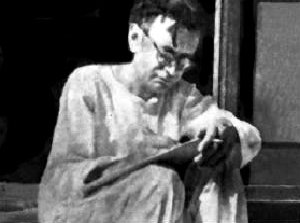 Saadat Hasan Manto, one of the greatest short story writers of the 20th century was born on May 11, 1912 in Ludhiana district of Indian Punjab. I could have referred to him as one of the greatest short story writers in Urdu but many would agree that given the depth and the quality and the uniqueness of his stories, he stands among the giants of this genre.
Saadat Hasan Manto, one of the greatest short story writers of the 20th century was born on May 11, 1912 in Ludhiana district of Indian Punjab. I could have referred to him as one of the greatest short story writers in Urdu but many would agree that given the depth and the quality and the uniqueness of his stories, he stands among the giants of this genre.
His writings have had a profound impact on millions who read them as he dared to address topics that were typically considered taboo for his time. My love for short stories started with reading Qurratulain Haider’s translations of Russian short stories (Songs of the Alps, etc.) but when I moved on to Manto it was almost as if I had matured by years within days.
The power of his expression along with his command on human psyche often leaves readers wondering if they could ever forget his stories, even if they wanted to, considering the hard, cold truth about the dark side of humans highlighted in his stories. One could write dissertations about his life and his writings and may be even about certain events of his life but I would only briefly mention two of his great short stories that come to my mind as I write these lines.
Given the turbulent times he lived in, the two stories, like a few of his other stories, focus on partition. While writers like Amrita Pritam lamented on the atrocities and heinous crimes committed by people who once were friendly and peaceful neighbors, in their poetry and writings, Manto wrote in a way that it left little room for poetry or any thing subtle. As he used to say,
“I am simply telling the truth – as it is.”
And perhaps that is why he wasn’t much liked by the literary circles of his time.
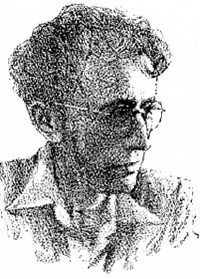 In his story Toba Tek Singh, the main character is a Sardar named Bishan Singh from the town Toba Tek Singh. He is an inmate at a mentally disabled facility around the time of the partition. According to guards at facility, Bishan Singh had not really slept or lied down in the last 15 years. Occasionally he would lean against a wall and rest a little. In the story, as the days get closer to the partition, his inquiry about Toba Tek Singh, a present day Pakistan town, about whether it was in India or Pakistan, gets more and more frequent. There is also a mysterious, mindless set of words Bishan Singh would speak on occasion which went like:
In his story Toba Tek Singh, the main character is a Sardar named Bishan Singh from the town Toba Tek Singh. He is an inmate at a mentally disabled facility around the time of the partition. According to guards at facility, Bishan Singh had not really slept or lied down in the last 15 years. Occasionally he would lean against a wall and rest a little. In the story, as the days get closer to the partition, his inquiry about Toba Tek Singh, a present day Pakistan town, about whether it was in India or Pakistan, gets more and more frequent. There is also a mysterious, mindless set of words Bishan Singh would speak on occasion which went like:
Uper dee gur gur dee annex dee bay dhayaana dee mung dee daal of the laltain.
Without writing the actual story here, Bishan Singh finally finds out that he would be transferred to India and that his town Toba Tek Singh will be left behind in Pakistan. Upon hearing this he speaks his gibberish words perhaps for the last time with a bit of a twist;
Uper dee gur gur dee annexe dee mung dee daal of the Pakistan and Hindustan dur fittey.
On the day the inmates are to be transferred to their respective countries, Bishan Singh or Toba Tek Singh, as he is known by his fellow inmates, breaks free from the guards on the border and stands in the no man’s land. Given his harmless being guards let him be. After a few hours of standing at one spot on his swollen legs he finally collapses with a scream and dies in an area that belonged to neither India nor Pakistan.
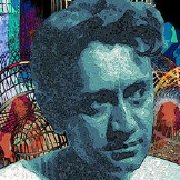
 The second story that I want to very briefly mention is titled Khol Do. After reading the story the feeling was that of almost being hit by a truck or similar to how I felt when I first saw the movie Schindler’s List. The story in a way epitomizes Manto’s works and also shows that one needs nerves to handle his stories as they deal with the darkest and the harshest realities of life that we often tend to look away from lest they rattle our peaceful world.
The second story that I want to very briefly mention is titled Khol Do. After reading the story the feeling was that of almost being hit by a truck or similar to how I felt when I first saw the movie Schindler’s List. The story in a way epitomizes Manto’s works and also shows that one needs nerves to handle his stories as they deal with the darkest and the harshest realities of life that we often tend to look away from lest they rattle our peaceful world.
The story is about a woman, a victim of the brutal riots of 1947, who is discovered and is pronounced dead. In that moment of death as the doctor orders the windows to be opened, she uncovers the horrendous side of the humans and shows how humanity had died at that point in history. The readers are essentially left shell-shocked.
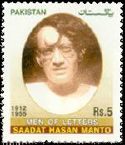 In Pakistan of 1950s many labeled this story and a few others from Manto profane and he was tried several times for obscenity, albeit he was never convicted. In one of his trials Manto said to the judge
In Pakistan of 1950s many labeled this story and a few others from Manto profane and he was tried several times for obscenity, albeit he was never convicted. In one of his trials Manto said to the judge
“A writer picks up his pen only when his sensibility is hurt.”
(Editor’s Note: Some of the finest translations of Manto’s work were by the late Khalid Hassan).
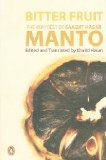
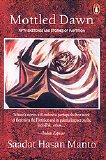
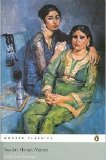
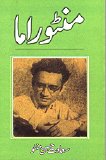



















































A great writer,and a noteable literature work by him…
One Thing Might Seems to be Apparent ,A DeadLock,for Intellectual,Historians,Social Sientist,Reformist,and Literary Critics that is “HEN EGG DILEMMA”
Whether MANTO CAME FIRST OR URDU AFSANA